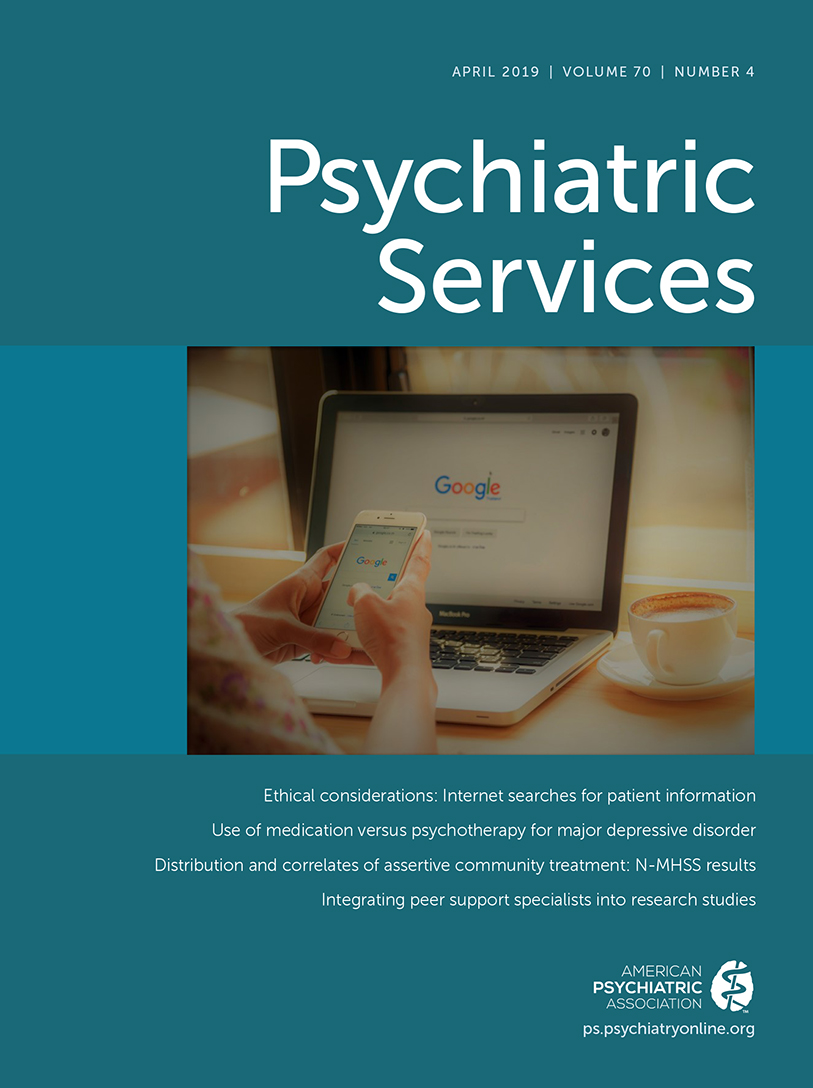Predicting Engagement With Mental Health Peer Specialist Services
Abstract
Objective:
Peer specialists are individuals with behavioral disorders who complete training to use their experiences to help others with similar disorders. Recent analyses have suggested that greater engagement with peer specialist services is associated with fewer psychiatric symptoms. This study assessed predictors of engagement with peer specialist services.
Methods:
Using the Andersen model of health service utilization with a sample of veterans (N=71) receiving housing support, investigators constructed a negative binomial regression model to evaluate the association between peer specialist service engagement and the model’s three factors assessed at baseline of a larger trial: predisposing (personal demographic and social variables); enabling (support variables), and need (perceived and evaluated health problems). Demographic characteristics and behavioral health service use six months before baseline were also predictors.
Results:
Greater hope (predisposing), psychiatric symptoms (need), and service utilization significantly predicted greater peer specialist engagement.
Conclusions:
These results suggest subpopulations with whom peer specialists would be most likely to engage successfully, perhaps improving their efficiency.



